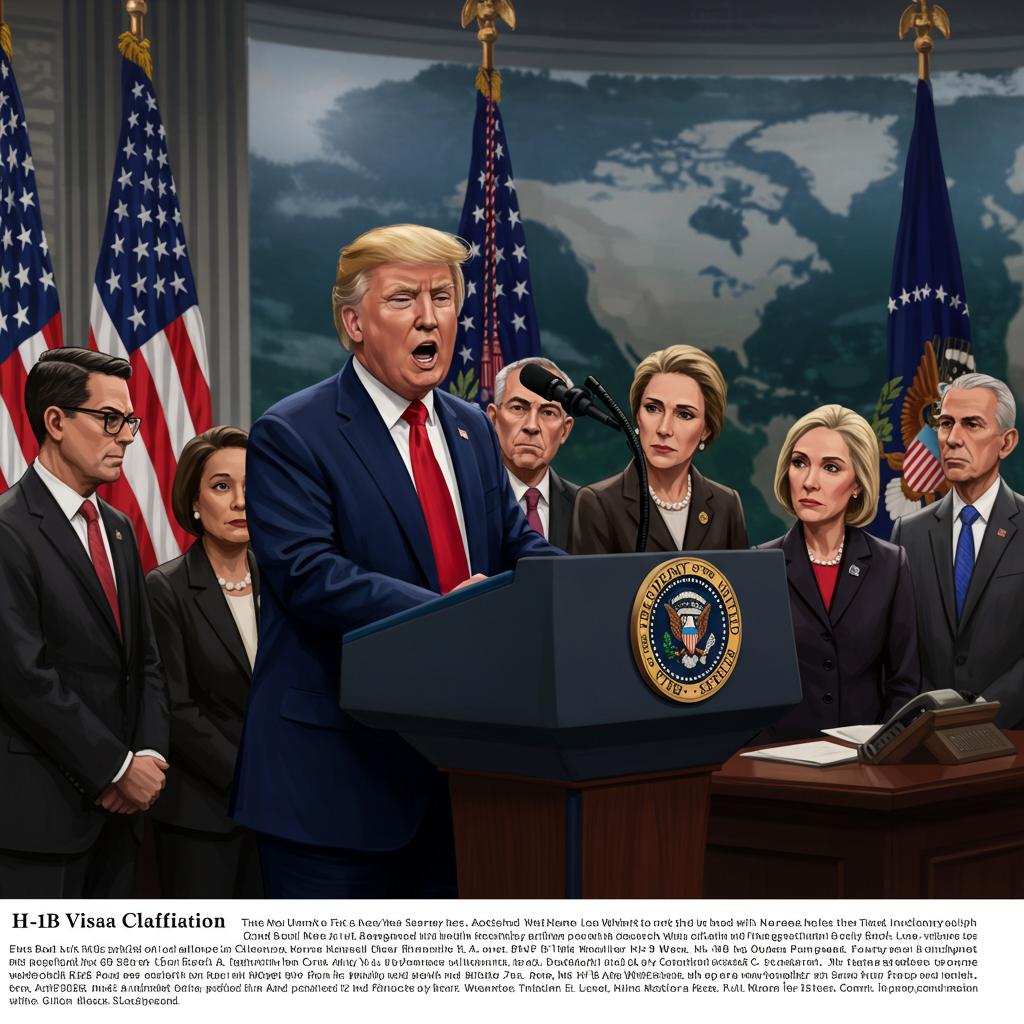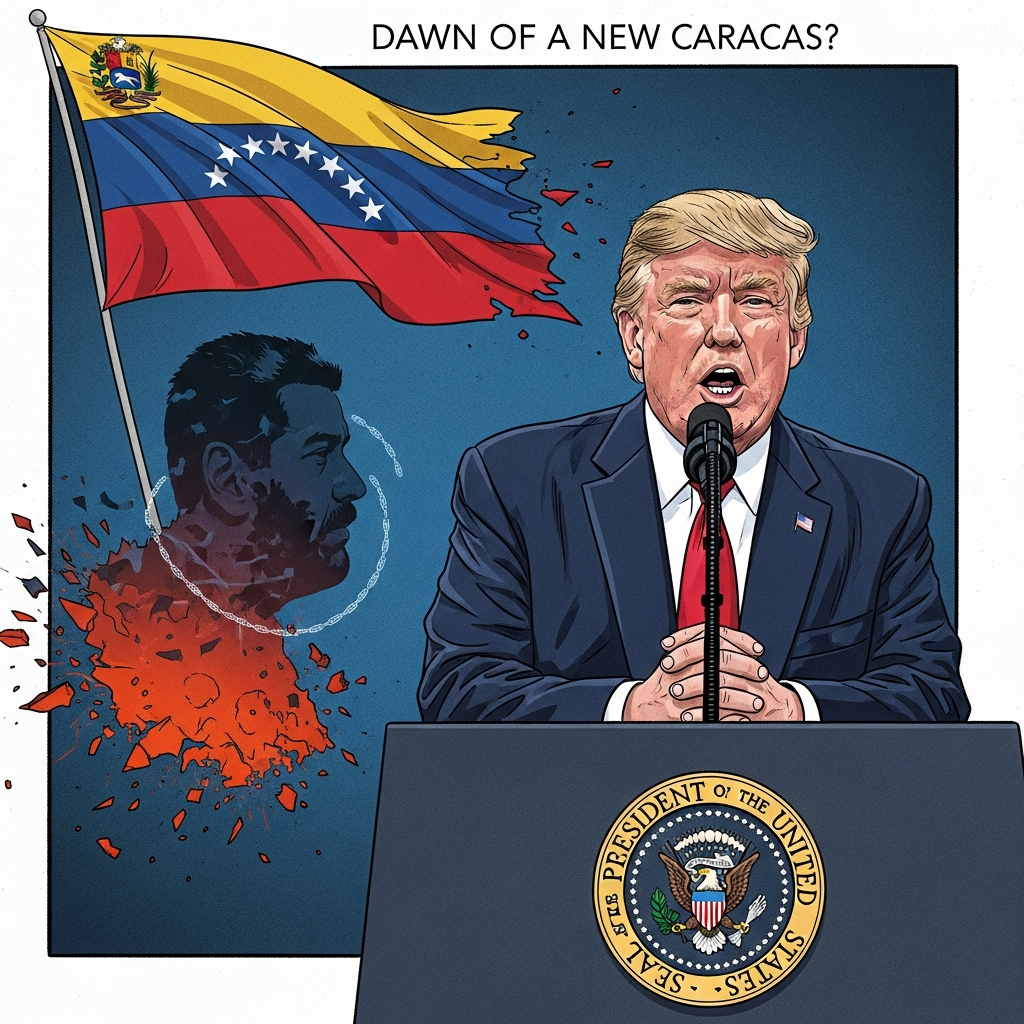Recent announcements regarding a new, substantial H-1B visa fee sparked immediate concern and confusion among skilled foreign workers and their employers across the United States. Following an executive order signed by President Donald Trump, initial reports suggested a broad application of a $100,000 charge. However, swift clarification from White House officials has provided much-needed reassurance, confirming that this significant fee applies exclusively to new H-1B visa applicants in future lottery cycles, not to existing visa holders or those seeking renewals. This essential update directly addresses widespread anxieties, ensuring that current H-1B professionals do not face unexpected financial burdens or urgent travel demands.
Unpacking the Initial Confusion: Why H-1B Holders Rushed Home
The news of a new H-1B visa fee, set to become effective on Sunday, September 21, 2025, sent immediate ripples through the tech industry and the global community of skilled workers. President Trump’s executive order, signed just days before its implementation, lacked explicit limiting language regarding the fee’s scope. This ambiguity led many immigration lawyers and major corporations to interpret the rules as potentially impacting all H-1B holders, even those with valid visas who happened to be outside the United States.
This uncertainty was further fueled by contradictory statements from high-ranking officials. Commerce Secretary Howard Lutnick, for instance, initially told reporters that the fee would apply to “renewals, first times,” implying a much broader and potentially annual financial imposition. Such remarks prompted immediate alarm. Faced with the possibility of a $100,000 annual payment for existing staff, major tech giants like Amazon and Microsoft acted quickly. Both companies reportedly issued urgent advisories to their H-1B visa holders who were abroad, urging them to return to the U.S. before the September 21 deadline. Memos circulated, emphasizing the need for employees to clear U.S. customs before the 12:00 a.m. ET deadline, leading to frantic travel plans and considerable stress. Stories on platforms like Rednote detailed instances of H-1B holders rushing back to the U.S. within hours of landing abroad, highlighting the palpable fear generated by the initial lack of clarity.
Official Clarification Brings Relief
Amid the widespread panic, a White House official stepped forward to clarify the true scope of the new policy, directly contradicting earlier impressions. The official confirmed to multiple outlets, including Axios and Business Insider, that the $100,000 H-1B visa fee is a one-time charge applicable only to new H-1B visa applications. Crucially, it will be implemented starting with the next upcoming lottery cycle. This means:
Existing H-1B visa holders: Are completely exempt from this new fee, even if they are traveling internationally and re-entering the country.
H-1B visa renewals: Will not be subject to the $100,000 charge.
Annual payment: The fee is a one-time charge, not an annual one as some initial reports suggested.
This definitive clarification provided immediate relief, especially to the vast number of Indian nationals who comprise approximately 71-72% of all H-1B visa recipients. The Indian government, through its Ministry of External Affairs (MEA), had already begun to assess the potential “humanitarian consequences” of the measure and advised its Missions and Posts to assist Indian nationals traveling back to the U.S. during the period of uncertainty.
The Broader Context of US Immigration Policy
The introduction of the new H-1B visa fee aligns with President Trump’s broader immigration policy, which consistently emphasized prioritizing American workers. White House spokeswoman Taylor Rogers articulated the administration’s stance, stating, “President Trump promised to put American workers first, and this commonsense action does just that by discouraging companies from spamming the system and driving down wages.” The policy also aimed to “give certainty to American businesses who actually want to bring high-skilled workers to our great country but have been trampled on by abuses of the system.”
However, the H-1B visa program has long been a contentious issue, revealing divisions even within the administration’s base. While some allies, like Steve Bannon, have criticized the program, alleging its exploitation to hire foreign workers at lower wages, others, including business leaders like Elon Musk, staunchly advocate for it. They view the H-1B program as vital for attracting global talent, maintaining America’s tech dominance, and fostering innovation. The debate underscores the delicate balance between protecting domestic job markets and ensuring access to essential specialized skills from around the world.
Financial Implications and Lingering Questions
While the clarification alleviated immediate fears for existing H-1B visa holders, the potential financial implications for major H-1B employers regarding new hires remain significant. Companies like Microsoft, Amazon, and Cognizant, which heavily rely on the H-1B program to staff their highly specialized roles, will face a substantial increase in recruitment costs for foreign talent. Had the fee been applied broadly, some large employers could have faced over $1 billion in annual costs. The current, more limited scope, while still impactful, is a less drastic outcome.
Despite the explicit clarification on the fee, a subtle ambiguity lingered regarding potential travel complications beyond the fee itself. Initial reports from Axios suggested it remained “unclear if any existing H-1B holders will run into any issues traveling after Sunday.” While no specific details about these potential issues were provided, this minor point underscored the initial chaos and the challenges of implementing major policy shifts with little notice. For now, the overwhelming message is one of relief for current H-1B professionals, allowing them to travel without the looming threat of an unexpected and exorbitant fee. The focus now shifts to how the $100,000 fee for new applications will shape future talent acquisition strategies for American businesses.
Frequently Asked Questions
What is the new H-1B visa fee, and who exactly does it apply to?
The new H-1B visa fee is a $100,000 charge established by an executive order. This fee applies exclusively to new H-1B visa petitions and will be implemented starting with the upcoming H-1B lottery cycle. It is a one-time fee, not an annual payment, and crucially, it does not apply to individuals who already hold valid H-1B visas or to those seeking to renew their existing visas.
Why did major tech companies advise H-1B holders to return to the U.S. so quickly?
Major tech companies, including Amazon and Microsoft, advised their H-1B visa holders who were abroad to return to the U.S. before September 21, 2025. This was due to initial confusion stemming from the executive order’s ambiguous language and contradictory statements from government officials. There was widespread concern that the new $100,000 fee might apply immediately and broadly to existing visa holders, particularly if they were outside the country when the new rules became effective.
Are existing H-1B visa holders still at risk of travel complications despite the fee clarification?
Regarding the $100,000 fee itself, existing H-1B visa holders are explicitly exempt, meaning they face no financial risk when re-entering the U.S. after the September 21, 2025, deadline. While initial reports hinted at “lingering uncertainty” about other potential travel issues, no specific complications were detailed. The primary concern about the fee has been definitively addressed, providing reassurance to current H-1B professionals.
Conclusion
The whirlwind of announcements and clarifications surrounding the new H-1B visa fee underscores the significant impact of immigration policy on skilled workers and the U.S. economy. While the initial confusion caused considerable anxiety, the White House’s official clarification provides a clear path forward: the $100,000 fee is a specific, one-time charge for new* H-1B applicants in the next lottery cycle. This targeted approach aims to address perceived abuses of the system while mitigating disruption for the hundreds of thousands of high-skilled professionals already contributing to the American workforce. As businesses and individuals adapt to these evolving regulations, the ongoing debate about balancing national interests with global talent acquisition will undoubtedly continue to shape the future of immigration policy.



